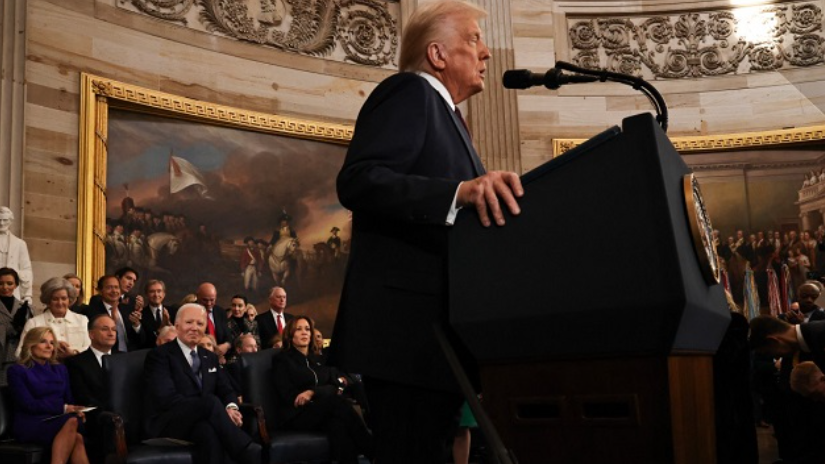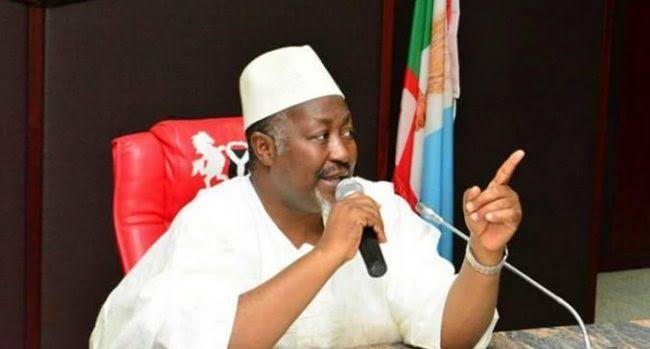
President Trump Begins Second Term with Sweeping Executive Orders on Immigration, Climate, and Foreign Policy
On his first day back in office, President Donald Trump signed a series of executive orders addressing a wide range of issues, from immigration and climate policy to pardons for individuals involved in the January 6, 2021, Capitol riot. Some of these orders fulfilled promises Trump made during his 2024 campaign, while others, such as the withdrawal from the World Health Organization (WHO), were unexpected.
Trump initiated sweeping changes to U.S. immigration policy. He declared a national emergency at the southern border, citing the need for immediate action. The president also announced plans for a mass deportation campaign involving the military, targeting individuals he referred to as "criminal aliens."
In a controversial move, Trump signed an executive order attempting to revoke birthright citizenship. This longstanding principle grants automatic U.S. citizenship to anyone born on American soil, as enshrined in the Constitution. Legal experts anticipate significant challenges to this order in the courts.
President Trump issued pardons for several individuals involved in the January 6, 2021, attack on the Capitol. He described those convicted or who pleaded guilty as "hostages" and used the opportunity to defend their actions during the riots aimed at overturning the results of the 2020 election.
In line with his campaign rhetoric against what he termed “woke” culture, Trump rescinded multiple executive orders promoting diversity, equity, and LGBTQ rights. He rolled back initiatives designed to foster inclusivity in government, businesses, and healthcare. Trump further declared that the federal government would officially recognize only "two genders, male and female."
President Trump renewed his opposition to global climate initiatives by signing an order to withdraw the United States from the Paris Climate Accord, a move he had previously executed during his first term. This withdrawal, which requires a year to finalize after formal notification to the United Nations, reinforces his rejection of international efforts to combat climate change despite growing evidence of catastrophic weather events.
Additionally, Trump declared a "national energy emergency" to expand domestic oil and gas drilling, calling for increased energy production in his inaugural address with the slogan, “We will drill, baby, drill.”
To reverse policies enacted during the COVID-19 pandemic, Trump signed an order requiring federal employees to return to in-office work full-time. This action aims to roll back widespread work-from-home allowances that became standard during the pandemic.
Another unexpected move was Trump’s announcement that the United States would withdraw from the World Health Organization (WHO). He justified this decision by claiming that the U.S. was unfairly contributing more financially than China to the global health body.
Trump temporarily paused enforcement of a new law that effectively bans TikTok in the United States. The 75-day delay gives the app’s Chinese parent company, ByteDance, additional time to negotiate selling a 50% stake in the company to U.S. interests.
President Trump took steps to alter key foreign policy actions from the previous administration. He revoked sanctions placed by the Biden administration on violent Israeli settlers accused of abuses against Palestinians in the occupied West Bank. Additionally, Trump removed Cuba from the U.S. list of state sponsors of terrorism. This reversal came shortly after President Joe Biden had re-added Cuba to the list as part of a deal to secure the release of prisoners.
President Trump’s initial actions signal a return to many of his first-term policies, underscoring his administration’s focus on immigration enforcement, energy independence, and the rollback of progressive initiatives. These executive orders reflect his campaign promises to undo several key policies of the Biden administration while prioritizing his vision for America’s domestic and international priorities. Legal and political challenges are expected to arise as the country adjusts to his leadership in this new term.
















Comments